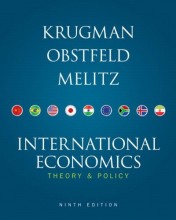Article - Frey: shirking or work morale
8 important questions on Article - Frey: shirking or work morale
Extent of work effort applied by an individual depends on a number of factors, such as
Morale is an important determinant of behaviour compared to regulations in areas where it is particularly costly to influence behaviour by external action. Four areas:
- Regulations are, compared to morally guided behaviour, relatively ineffective where the quality of performance is difficult to observe (relationship doctor – patient).
- Wherever decisions are made collectively, it is difficult to evaluate the performance of a particular individual.
- Regulations are ineffective in improving behaviour according to a principal’s desires where the activities require a high degree of discretionary decision-making.
Misattribution effect is further strengthened by the fact that most individuals believe their performance to be
- Higher grades + faster learning
- Never study anything twice
- 100% sure, 100% understanding
Sometimes regulations increase a work morale, if an employee feels that the principal can now detect how good this person is working or if monitoring prevents others from shirking (as nobody want to be paid as much as someone who put less effort)
It is difficult to detect who to monitor (who is shirking), since those people shirking try to hide this. Principals are unlikely to be able to establish regulations directed only at shirkers; they are liable to errors:
- Agents who do not shirk are monitored. They feel badly treated because of the mistrust from principals. Large extent of misattribution of morale prevails.
There is a difference between regulations in different institutional settings. Private institutions should use their workforce as effective as possible to fight competition. Their policies need to fit the work morale of the workers. They should invest in keeping misattributions of work morale down. In public institutions, they treat workings
When the principals attribute a lower morale to the agents than they actually have, an implicit contract between the principal and agent is unilaterally violated, and the agents reduce their “excess morale” to the level attributed to them.
Shirking can be a large problem for employers. Instead of implementing monetary incentives like flexible wage schemes also directly regulating employees can offer a solution for this. In “Shirking or work morale? The impact of regulating“ Frey warns, however, that there are possible negative effect of such regulation. Describe under which conditions this negative effect will appear.
The question on the page originate from the summary of the following study material:
- A unique study and practice tool
- Never study anything twice again
- Get the grades you hope for
- 100% sure, 100% understanding































